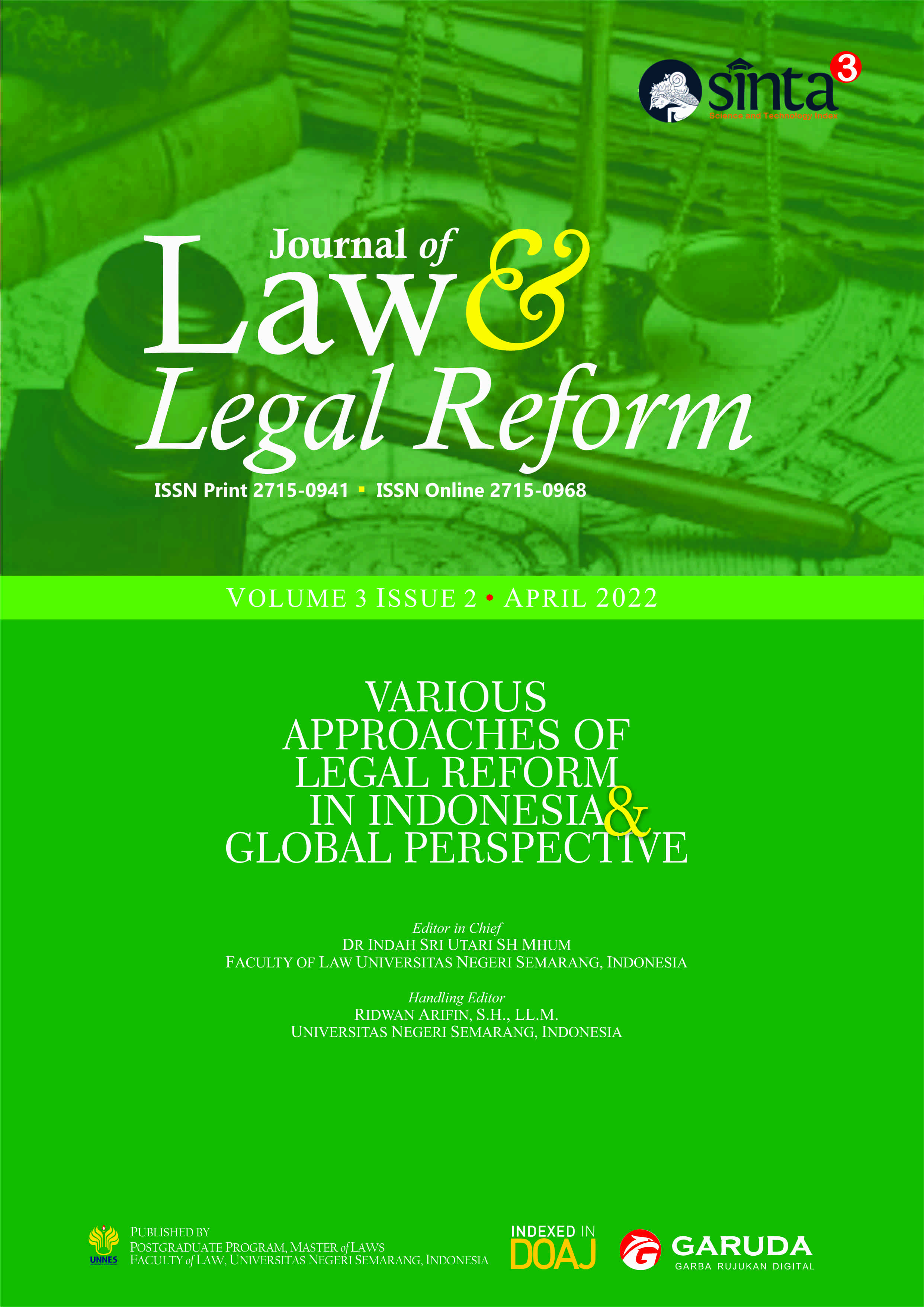Analysis of Financial Technology Product Contracts Peer to Peer Lending Syariah Platform Ammana.id
Main Article Content
Abstract
Ammana.id in obtaining funds from lenders uses a representative contract with wages (wakalah bil ujrah) in transactions between them and the lender. That way, Ammana.id is considered to have accepted a dependent or representative from the borrower, so they are entitled to profit (ujrah). Meanwhile, between lenders and sharia cooperatives, a profit-sharing contract (musharaka) is established. Ammana.id cooperates with BMT, KSPPS, BPRS, Sharia Venture Institutions as microfinance institutions that distribute loan funds. The law of wakalah with the presence and absence of wages is valid, because the Prophet Muhammad SAW once sent his employees to collect zakat and give them wages. The next contract is the Musyarakah contract which is between Ammana.id and the fund distributor. With a musharaka contract, the owner of the capital and the distributor of the funds both deposit capital in nominal terms according to the ability and agreement of the parties in the musharaka. This study formulates the problem (1) What is the form of the Ammana.id platform p2p lending sharia product contract? and (2) how is the Ammana.id platform sharia p2p lending product law in terms of islamic law? Ammana.id is present as a Sharia P2P (Peer to Peer) lending company with a non-direct funding system, where MSME actors are required to become part/members of micro sharia finance partners registered with Ammana.id which function as a curation institution for MSME business feasibility. which will be co-funded with lenders/funders through a crowdfunding/co-funding scheme through fintech applications.
Article Details

This work is licensed under a Creative Commons Attribution-NonCommercial-ShareAlike 4.0 International License.
All writings published in this journal are personal views of the authors and do not represent the views of this journal and the author's affiliated institutions. Author(s) retain copyrights under a Creative Commons Attribution-NonCommercial-ShareAlike 4.0 International (CC BY-NC-SA 4.0).
References
Az-Zuhaili, W., & Al-Kattani, A. H. (2011). Fiqh Islwa wa Adilatuh. Gema Insani.
Dapta, F. A. S. H. (2012). Perbedaan Pola Channeling dan Executing pada Pembiayaan Linkage Program di Bank Syariah Mandiri Cabang Salatiga. Muqtasid: Jurnal Ekonomi Dan Perbankan Syariah, 3(2), 251. https://doi.org/10.18326/muqtasid.v3i2.251-276
Holsti, O., & Addison-Wesley. (n.d.). Content analysis for the social sciences and humanities. Ci.Nii.Ac.Jp. Retrieved February 20, 2022, from https://ci.nii.ac.jp/naid/10007743499/
Iskandar, E., Ayumiati, A., & Katrin, N. (2019). Analisis Prosedur Pembiayaan Dan Manajemen Risiko Pada Perusahaan Peer To Peer (P2P) Lending Syariah Di Indonesia. J-ISCAN: Journal of Islamic Accounting Research, 1(2), 1–28. https://doi.org/10.52490/j-iscan.v1i2.698
Kasmir. (2012). Bank & Lembaga Keuangan Lainnya. PT Raja Grafindo Persada.
Mamang, S., & Sopiah. (2010). Metodologi Penelitian : Pendekatan Praktis dalam Penelitian. Penerbit Andi.
Maulida, S., Hasan, A., & Umar, M. (2020). Implementasi Akad Pembiayaan Qard dan Wakalah bil Ujrah pada Platform Fintech Lending Syariah ditinjau Berdasarkan Peraturan Otoritas Jasa Keuangan ( OJK ) dan Fatwa DSN-MUI. Al-Tijary, Jurnal Ekonomi Dan Bisnis Islam, 5(2), 175–189.
Muhammad. (2009). Model-model Akad Pembiayaan di Bank Syariah. UII Press Yogyakarta.
Muhammad. (2011). Manajemen Bank Syariah. Unit Penerbit dan Pencetakan Sekolah Tinggi Ilmu Manajemen YKPN.
Nuhyatia, I. (2013). Sekolah Tinggi Agama Islam Darul Ulum Banyuwangi. Jurnal Ekonomi Dan Hukum Islam, 3(2), 94–116.
Penyelenggara Fintech Terdaftar di OJK per 1 Februari 2019. (n.d.). Retrieved February 20, 2022, from https://www.ojk.go.id/id/berita-dan-kegiatan/publikasi/Pages/Penyelenggara-Fintech-Terdaftar-di-OJK-per-Februari-2019.aspx
Purnamasari, I. D., & Suswinarno. (2011). Akad Syariah. PT Mizan Pustaka.
Purwanto. (2008). Metode Penelitian Kuantitatif. Pustaka Pelajar.
Rafif, M. M. (2020). Implementasi Akad Mudarabah Pada Pembiayaan Daring Di PT Ammana Fintek Syariah Perspektif Kepatuhan Syariah. Diss. Universitas Islam Indonesia. https://dspace.uii.ac.id/handle/123456789/19953
Rahardjo, M. (2010, June 1). Jenis dan Metode Penelitian Kualitatif. https://www.uin-malang.ac.id/r/100601/jenis-dan-metode-penelitian-kualitatif.html
Statistik Fintech Lending Periode Maret 2019. (n.d.). Retrieved February 20, 2022, from https://www.ojk.go.id/id/kanal/iknb/data-dan-statistik/fintech/Pages/Statistik-Fintech-Lending-Periode-Maret-2019.aspx
Suhendi, H. (2014). Fiqh Muamalah (9th ed.). Rajawali Press.
Sulaiman, A. W. I. A., & Novia, A. (2006). Banking cards syariah : kartu kredit dan debit dalam perspektif fiqih. Raja Grafindo Persada.
T, Wijayanti. (2018). Pelaksanaan Pemberian Kredit Berbasis Teknologi Informasi Oleh Fintech Kepada Pelaku UKM. [Universitas Muhammadiyah Surakarta]. http://eprints.ums.ac.id/66263/16/naskah publikasi REV.pdf
Tim Kashiko. (2000). Kamus lengkap : Arab - Indonesia. Kashiko.
